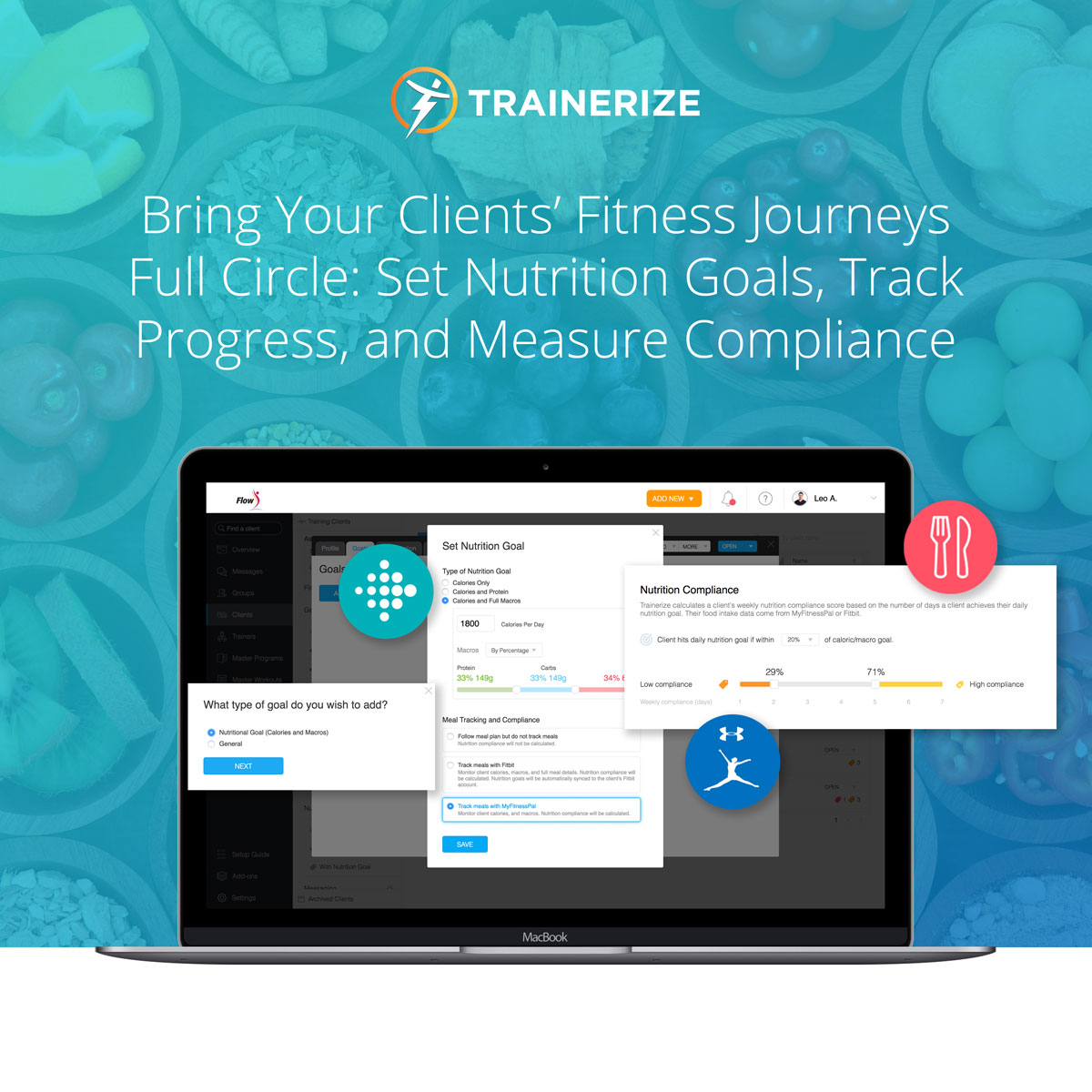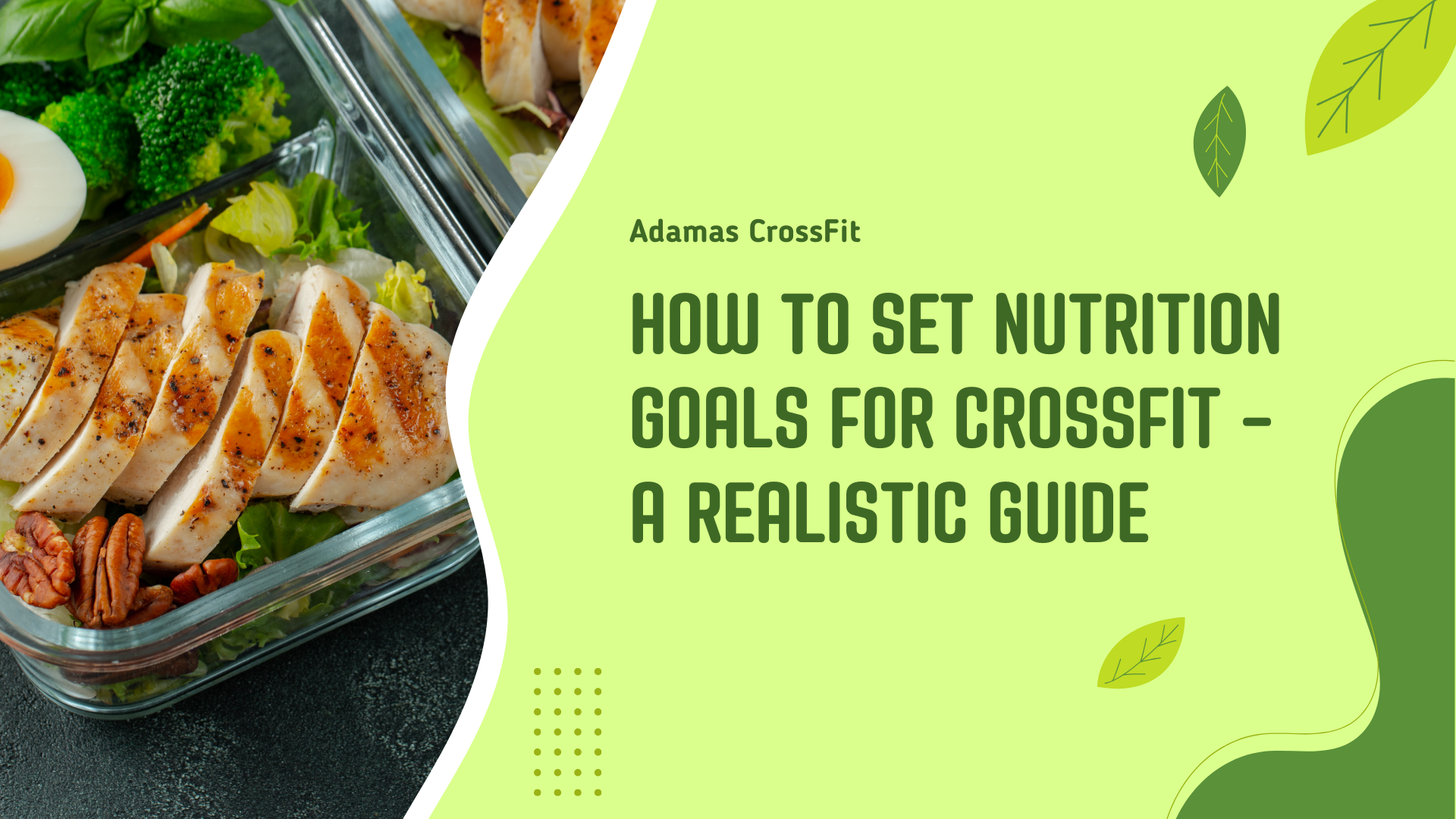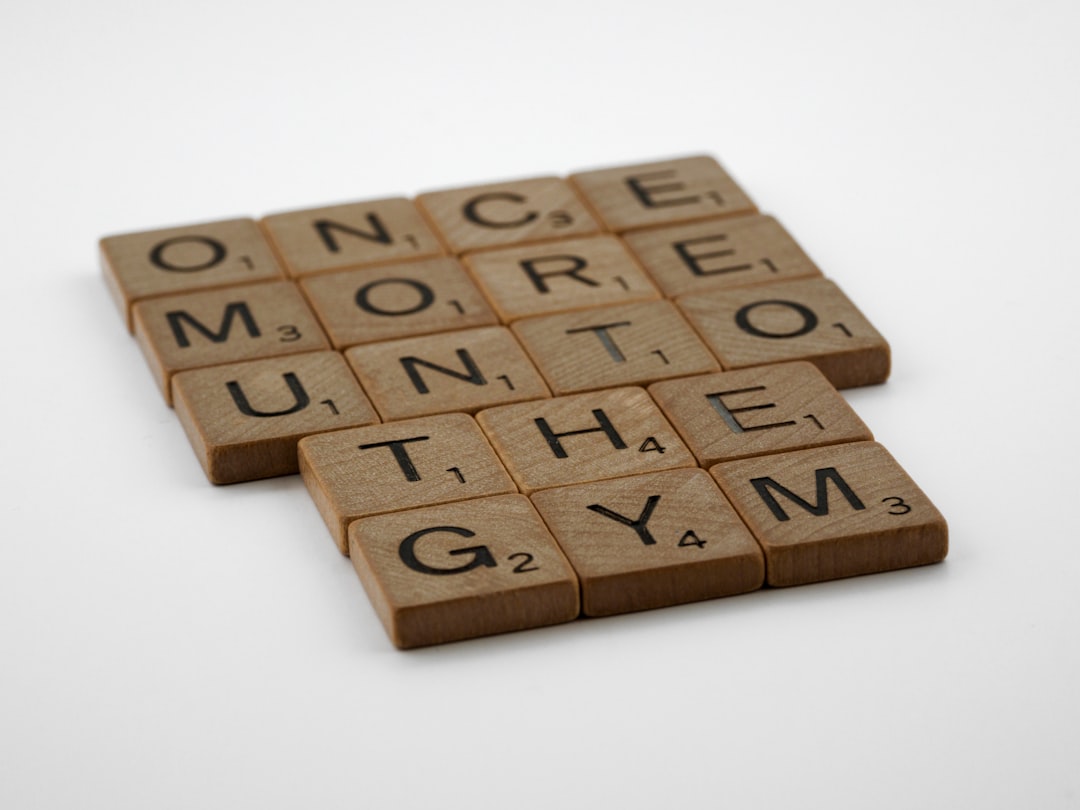Setting nutrition goals can be a game changer for your health and well-being. Imagine having the energy to conquer your day, feeling confident in your skin, and knowing that every meal is helping you reach your dreams.
Sounds great, right? Whether you’re aiming to shed a few pounds, boost your energy levels, or simply adopt healthier eating habits, clear nutrition goals are your roadmap to success. But where do you start, and how do you make sure those goals are achievable?
This article is here to guide you through the process of crafting nutrition goals that are personalized, realistic, and truly impactful. Ready to take control of your eating habits and transform your life? Let’s dive in and discover how you can set nutrition goals that stick and motivate you every step of the way.
Importance Of Nutrition Goals
Setting nutrition goals helps improve health and energy levels. Clear goals guide you in making healthier food choices. They help track progress, keeping you motivated and focused on your wellness journey.
Setting nutrition goals is crucial for your health journey. They act as a roadmap, guiding your choices and helping you stay on track. Just as you wouldn’t set off on a road trip without a destination, having clear nutrition goals ensures you make informed decisions about what you eat. It’s about creating a sustainable path to a healthier you, one meal at a time.Understanding Your Personal Needs
Everyone’s nutritional needs are different. Your body has unique requirements based on factors like age, activity level, and health conditions. Think about what your body truly needs. Do you need more energy for your busy lifestyle? Or perhaps you’re aiming to improve your digestion? Identify these needs to tailor your goals effectively.Setting Realistic Targets
It’s tempting to aim for drastic changes, but realistic targets are key to success. Start small and build upon your achievements. If you’re not used to eating vegetables, add them gradually to your meals. Setting achievable goals prevents frustration and keeps you motivated. Remember, progress is better than perfection.Tracking Your Progress
Monitoring your progress is essential for staying motivated. Keep a journal or use a nutrition app to track your meals and note how you feel. Are you more energetic or sleeping better? Observing these changes can reinforce your commitment to your goals. It’s rewarding to see the positive impact of your choices.Adjusting As Needed
Your needs may change over time, and that’s okay. Be flexible and adjust your goals as necessary. If your lifestyle changes or you encounter new health challenges, revisit your goals. For instance, if you start a new exercise regime, you might need more protein. Adapting your goals ensures they remain relevant and effective.Seeking Support And Resources
Don’t hesitate to seek support. Share your goals with friends or family who can encourage you. Consider consulting a nutritionist for expert advice. Sometimes, having someone to share the journey with makes it easier. They can provide insights you might not have considered and help keep you accountable.Reflecting On Your Journey
Take time to reflect on your journey. Celebrate your successes, no matter how small. Ask yourself what worked and what didn’t. Reflection helps you learn from your experiences and refine your approach. It’s a way to ensure your nutrition goals continue to serve you well on your path to better health. What nutrition goals will you set today?Assessing Current Dietary Habits
Embarking on the journey to healthier eating begins with understanding your current dietary habits. You need to know where you stand before charting a path forward. It’s like taking stock of the ingredients in your kitchen before whipping up a new recipe. Assessing your current dietary habits is essential for setting realistic and achievable nutrition goals.
Tracking Food Intake
Start by keeping a food journal. Jot down everything you eat and drink for at least a week. This will give you a clear picture of your daily consumption patterns. You might be surprised at how often you snack or how much soda you drink.
Consider using apps to track your meals. They can provide insights into calories, nutrients, and portion sizes. This data is invaluable in understanding your eating habits. Ask yourself: Are you eating balanced meals, or are you leaning too heavily on convenience foods?
Identifying Nutritional Gaps
Once you have tracked your intake, it’s time to analyze. Look for missing nutrients. Are you getting enough fiber? How about vitamins and minerals? A lack of these can impact your energy levels and overall health.
Consult nutrition guidelines to compare your intake. They can serve as a benchmark for what you might be missing. You might find that your protein intake is low, or that your diet lacks healthy fats.
Reflect on how you feel daily. Are there times when you feel sluggish or unusually hungry? These could be signs of nutritional gaps. Identifying these will help you tailor your nutrition goals to better suit your needs.
Remember, assessing your current dietary habits is the first step to making meaningful changes. It’s about gaining insight into your eating patterns and recognizing where improvements can be made. What changes will you make today to start your path toward better nutrition?
Defining Health Objectives
Setting nutrition goals involves identifying personal health priorities. Focus on balanced meals and nutrient-rich foods. Stay consistent by tracking progress and adjusting plans as needed.
Defining health objectives is a crucial step in setting nutrition goals. By clearly identifying what you want to achieve, you can tailor your dietary habits to support your journey. Whether you’re looking to manage your weight, boost your energy, or improve mental clarity, having specific objectives will guide your actions and keep you motivated.Weight Management
Managing your weight is a common health objective for many. It involves balancing the calories you consume with the calories you burn. Start by assessing your current weight and setting a realistic target. Think about your lifestyle and how you can make sustainable changes. If you’ve noticed that evening snacks are your weakness, consider healthier alternatives or set a time limit for your last meal. Are your portions too large? Using smaller plates can help you control your serving sizes.Boosting Energy Levels
Feeling tired throughout the day? Your diet might be the culprit. Eating balanced meals with the right mix of carbohydrates, proteins, and fats can enhance your energy levels. Experiment with meal timing to see what works best for you. Some find that smaller, more frequent meals keep their energy consistent, while others do well with three solid meals a day. Drinking enough water is crucial too, as dehydration can make you feel sluggish.Improving Mental Clarity
Your brain needs the right nutrients to function optimally. Foods rich in omega-3 fatty acids, like salmon and walnuts, are known to support brain health. Leafy greens and berries can also aid in mental clarity. Consider your morning routine. Does your breakfast set you up for a focused day, or do you skip it altogether? A nutritious start can make a big difference in your concentration and productivity. Reflect on your habits and how they align with your goals. What small change can you make today to move closer to your objective?
Credit: www.thistle.co
Understanding Macronutrients
Understanding macronutrients is crucial for setting effective nutrition goals. These nutrients provide the energy our body needs. They play different roles in our health and wellness. Knowing their functions helps in making informed food choices. Let’s dive into the three main macronutrients: proteins, carbohydrates, and fats.
Proteins
Proteins are essential for building and repairing tissues. They support muscle growth and are key in immune function. Foods rich in protein include meat, fish, and beans. Dairy products and nuts also provide good protein sources. Aim for a balanced intake daily to meet your body’s needs.
Carbohydrates
Carbohydrates are the body’s main energy source. They fuel your brain and muscles. There are two types: simple and complex. Simple carbs give quick energy. Complex carbs provide lasting energy. Whole grains, fruits, and vegetables are great complex carb options. Choosing the right type affects energy levels and overall health.
Fats
Fats are vital for energy and cell function. They help absorb vitamins like A, D, E, and K. There are healthy and unhealthy fats. Healthy fats include unsaturated fats found in olive oil and avocados. Limit saturated and trans fats to maintain heart health. Including the right fats supports a balanced diet.
Micronutrients And Their Role
Micronutrients are small but mighty components of your diet that play a crucial role in your overall health. These vitamins and minerals are essential for your body to function correctly. If you’ve ever felt tired or sluggish, it might be because your body is missing out on these tiny nutrients. Setting nutrition goals that include a focus on micronutrients can help you feel more energized and healthier. But what exactly are these micronutrients, and how can they impact your nutrition goals?
Vitamins
Vitamins are organic compounds that you need in small amounts for various bodily functions. They support immune health, bone strength, and energy production. Have you ever noticed how your skin glows after eating a salad rich in leafy greens? That’s Vitamin A in action, promoting skin health. Aiming to include a variety of vitamins in your diet can lead to noticeable improvements in your wellbeing.
Think about adding foods like citrus fruits for Vitamin C, which boosts your immune system. Or, include nuts and seeds for Vitamin E, known for its antioxidant properties. It’s fascinating how such small changes can make a big difference in your daily energy levels.
Minerals
Minerals are inorganic elements like iron, calcium, and potassium. They play a vital role in bone health, muscle function, and nerve signaling. Have you ever wondered why athletes often eat bananas? It’s because they are loaded with potassium, which helps in muscle recovery and function.
Consider adding dairy products for calcium, essential for strong bones. Or include lean meat for iron, crucial for carrying oxygen through your blood. Picture yourself feeling less tired after a meal rich in iron – it’s empowering! The right minerals can be the secret weapon in your nutrition plan.
So, what’s stopping you from setting micronutrient-rich nutrition goals? Reflect on your daily meals and think about how you can add these essential vitamins and minerals. Small tweaks can lead to significant changes in how you feel. Are you ready to harness the power of micronutrients for a healthier you?

Credit: www.becomeio.com
Setting Smart Nutrition Goals
Crafting SMART nutrition goals involves setting specific, measurable, achievable, relevant, and time-bound targets. Start by identifying clear objectives that align with personal health needs. Break down goals into manageable steps to track progress and maintain motivation.
Setting nutrition goals can transform your health journey. It provides direction and purpose. One effective way to establish these goals is by using the SMART criteria. SMART stands for Specific, Measurable, Achievable, Relevant, and Timely. This method helps create clear and attainable nutrition goals. Let’s explore how to set SMART nutrition goals in detail.Specific Goals
Specific goals offer clarity. They define what you want to achieve. For example, instead of “eat healthier,” aim for “eat two servings of vegetables daily.” This specificity guides your actions. A specific goal removes ambiguity and provides a clear path forward.Measurable Progress
Measurable goals track your progress. They help you see your achievements. Consider tracking your water intake. If your goal is “drink eight glasses daily,” you can easily measure it. Measuring progress keeps you motivated. It shows how far you’ve come on your journey.Achievable Targets
Achievable targets are realistic. They match your current lifestyle and abilities. Setting “lose 2 pounds a week” is more attainable than “lose 20 pounds in a month.” Achievable goals prevent frustration. They build confidence in your ability to succeed.Relevant Objectives
Relevant goals align with your values. They connect to your overall health vision. If your focus is heart health, a goal like “reduce sodium intake” is relevant. Relevant objectives keep you committed. They ensure your efforts are meaningful and purposeful.Timely Completion
Timely goals have a clear deadline. They encourage prompt action. For instance, “reduce sugar intake by 50% in three months” gives a timeline. Timely goals create urgency. They help you stay focused and avoid procrastination.Creating A Balanced Meal Plan
Setting nutrition goals helps create balanced meal plans that support health and well-being. Identify daily needs for proteins, carbs, and fats. Adjust portions to match energy levels and dietary preferences.
Creating a balanced meal plan is the cornerstone of achieving your nutrition goals. It’s not just about eating less or cutting out certain foods. It’s about understanding what your body needs and finding a way to provide that through your meals. Think of it as an opportunity to explore new foods and create a healthy routine. But how do you actually put this into practice? Let’s break it down step-by-step.Portion Control
Understanding portion control is essential for maintaining a balanced diet. It’s easy to misjudge serving sizes, especially with restaurant portions often being larger than necessary. Start by familiarizing yourself with recommended serving sizes for different food groups. Use tools like measuring cups or a food scale at home to ensure you’re eating the right amounts. For example, a serving of meat is about the size of a deck of cards. Pay attention to hunger cues—stop eating when you feel satisfied, not stuffed.Variety And Moderation
A balanced meal plan thrives on variety. Eating a wide range of foods ensures you get all the nutrients your body needs. Aim to include different colors and types of fruits and vegetables in your meals. Moderation is equally important. You don’t have to give up your favorite treats entirely. Instead, enjoy them in small amounts and less frequently. This approach prevents feelings of deprivation and helps maintain long-term healthy eating habits. Consider making a weekly meal plan that incorporates different protein sources, grains, and produce. This not only keeps meals exciting but also ensures a nutrient-rich diet. Are you trying new recipes regularly? If not, this might be a great time to start experimenting in the kitchen. Creating a balanced meal plan is not just about following guidelines. It’s about adapting them to fit your lifestyle and preferences. By focusing on portion control and embracing variety and moderation, you’re setting yourself up for success.Incorporating Hydration Strategies
Setting nutrition goals involves integrating hydration strategies for optimal health. Drinking enough water supports digestion and nutrient absorption. Aim to balance fluid intake with diet for better results.
When setting nutrition goals, hydration often takes a backseat, yet it’s crucial for overall health and performance. Incorporating hydration strategies into your daily routine can be simple and rewarding. Imagine feeling more energetic and focused, all by paying attention to your water intake. Let’s dive into some practical ways to make hydration a priority.Daily Water Intake
Knowing how much water your body needs is the first step. A common rule of thumb is to drink eight 8-ounce glasses of water a day. But this can vary based on your activity level and environment. Have you ever noticed feeling sluggish after a busy day? Try adding a glass of water to your routine every hour. This not only helps you meet your daily goals but also keeps your energy levels steady. Tracking your water intake can be a game-changer. Use apps or a simple water bottle with measurement marks. Watching your progress can be motivating and fun.Hydration And Performance
Hydration isn’t just about quenching thirst; it directly impacts your physical and mental performance. Think back to a time when you felt drained during a workout. Often, dehydration is the culprit. Boosting your hydration can enhance endurance and concentration. Keep a water bottle handy during exercise and sip regularly. It’s an easy way to improve your results. Consider how hydration affects your cognitive abilities. Imagine being able to focus better on tasks just by staying hydrated. Your brain thrives on adequate water intake, leading to sharper thinking and memory. Remember, setting nutrition goals isn’t just about food. How you hydrate can make a significant difference in how you feel and perform each day. So, what’s your hydration strategy going to be?Overcoming Common Challenges
Setting nutrition goals often requires facing familiar obstacles. Identifying realistic targets and breaking them into smaller steps simplifies the journey. Stay flexible and adjust plans as needed to maintain progress.
Setting nutrition goals is a crucial step toward a healthier lifestyle. Yet, as with any journey, challenges can arise that may hinder progress. Facing these obstacles head-on is essential to ensure you stay on track. Let’s explore some common hurdles and how to overcome them.Dealing With Cravings
Cravings can be one of the biggest roadblocks to maintaining your nutrition goals. They often strike without warning, making it difficult to resist unhealthy temptations. Begin by identifying your trigger foods and situations. Once you know what sets off your cravings, you can create a plan to tackle them. Try keeping healthier alternatives on hand. For example, if you crave something sweet, have some fresh fruit or a small piece of dark chocolate available. Staying hydrated is also key. Sometimes, thirst is mistaken for hunger. So next time a craving hits, drink a glass of water and wait a few minutes. You might find the craving diminishes.Staying Motivated
Maintaining motivation over the long term can be challenging, especially when progress seems slow. It’s important to remind yourself why you set these nutrition goals in the first place. Consider creating a vision board that visually represents your health goals. Seeing your aspirations every day can keep you focused and driven. Connect with a community or support group. Sharing your journey with others can provide encouragement and accountability. When I joined a fitness group, I discovered that exchanging meal ideas and progress updates kept me motivated. Revisit your goals regularly. Are they still realistic and aligned with your lifestyle? Adjusting them as needed can prevent frustration and burnout. What strategies have you found effective in overcoming challenges with your nutrition goals? Reflect on your experiences and take proactive steps to ensure continued success.
Credit: www.trainerize.com
Monitoring Progress And Adjustments
Monitoring progress and making adjustments are key to achieving nutrition goals. Regular evaluation helps in understanding the effectiveness of your plan. It allows you to see what works and what needs change. Staying flexible and responsive ensures you remain on track.
Regular Check-ins
Check your progress regularly to stay on top of your nutrition goals. Weekly or bi-weekly reviews are ideal. They help identify trends and patterns in your eating habits. Use a food journal or app to track meals and snacks. Compare your current habits with your goals. Celebrate small successes and identify areas for improvement.
Weigh yourself consistently to monitor weight changes. Measure your waist and other key areas to note physical changes. Keep track of energy levels and overall well-being. Regular check-ins provide a detailed picture of your journey.
Adapting To Changes
Be ready to adapt if your current plan doesn’t yield results. Life circumstances can affect your nutrition goals. Adjust your plan according to new situations or challenges. If you experience a plateau, consider changing your diet or exercise routine. Consult a nutritionist for tailored advice.
Stay open to trying new foods and recipes. Experiment with different meal timings. Listen to your body’s signals and adjust your intake accordingly. Flexibility helps maintain progress and keeps motivation high.
Frequently Asked Questions
How Do You Set Goals For Nutrition?
Set specific, measurable, achievable, relevant, and time-bound (SMART) goals. Assess current nutrition habits and needs. Consult a nutritionist for personalized advice. Track progress regularly to ensure goals are met. Adjust as needed for sustainable success.
What Is The 40 30 30 Rule For Nutrition?
The 40 30 30 rule involves consuming 40% carbohydrates, 30% proteins, and 30% fats. This balanced nutrition plan helps maintain energy levels, supports muscle growth, and promotes overall health. It’s popular among athletes and those seeking a balanced diet for optimal fitness and well-being.
What Is An Example Of A Nutrition Goal?
An example of a nutrition goal is consuming five servings of fruits and vegetables daily to boost overall health. This goal promotes balanced nutrition, supports weight management, and enhances energy levels. Tracking intake can help in achieving this target effectively.
What Is The 80/20 Rule In Nutrition?
The 80/20 rule in nutrition suggests eating healthy foods 80% of the time. It allows for indulgence in less healthy options 20% of the time. This approach promotes balanced eating habits and flexibility while maintaining overall wellness and dietary goals.
Conclusion
Setting nutrition goals is a smart step for better health. Small changes matter. Start with realistic targets. Stay consistent and focused. Track your progress regularly. Celebrate small victories. Adjust goals as needed. Listen to your body. Seek help from professionals when unsure.
Balanced nutrition leads to a happier life. Keep learning about healthy habits. Stay motivated by joining supportive communities. Remember, every step counts. Your journey is personal and unique. Stay committed to your nutrition journey. Enjoy the benefits of a healthier lifestyle.
Keep going, you’ve got this!




